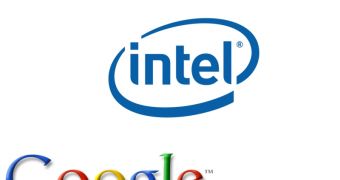Ok, so maybe the song doesn't go like that, but they deserve some credit, everything revolves around the Intel universe nowadays. Maybe it's still time for somebody to step in just as the checkered flag waves by, but it's sure going to be rough to take on Chipzilla, yet alone bring them down from their pedestal.
First of all, they've convinced Apple to trade their processors for Intel-based solutions, making it a surprise that allowed for prices to drop in Apple land, something yet unheard of up until that point (a cheap yet powerful Apple computer). After that, there was that rather unfortunate event when Dell started making AMD based computers and servers, which affected their pride, more than they financial revenues. But they soon got back up on their feet with a new success, according to digitimes.com, "Intel recently landed a deal with search engine giant Google to supply CPUs for about 300.000-400.000 servers" with a cool move by Intel in order to successfully seal the deal by "providing free chipsets to support the processors."
Now isn't this nice, how very thoughtful of them, they are the ones that supply the processors and free chips, no beer though, for the party, and Gigabyte Technologies, also the victim of an unsuccessful marriage (with ASUStek), is the one supporting the project, probably by manufacturing the motherboards. As if this deal weren't enough for Intel to call themselves satisfied, IBM comes to their "rescue", by introducing their X4 chipset for Intel's upcoming Tigerton Quad-Core Xeon MP processors.
The current X3 chipset is scalable up to 32 processors, of course, spread across eight motherboards, and by using quad-core processors, you can have up to 128 processor cores, and maybe even 256 cores, through the next generation of processors belonging to the Nehalem architecture which will use Simultaneous Multi-Threading (SMT) an advanced version of Hyper-Threading. Also the architecture Intel is going for resembles AMD's HyperTransport, it has the same point-to-point bus protocols but goes under a different name, Common Serial Bus (CSI).

 14 DAY TRIAL //
14 DAY TRIAL //